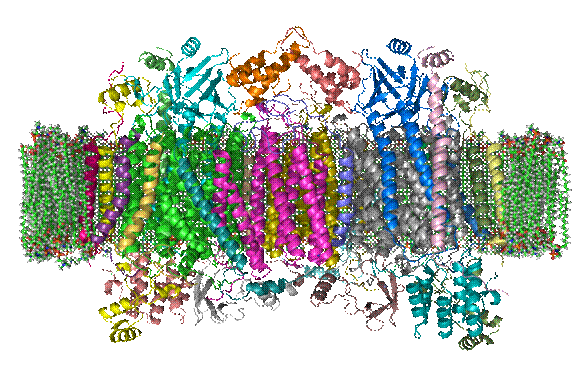Methylation and the healing power of Epigenetics. If you that have been reading my Blog or heard me Speak at one of the Life illuminated Events or have read my best selling book “Building Healthy Humans “then you have heard me talk about a lot about Epigenetics and Methylation
I thought you might enjoy reading this great article from the parent company that produces the organic whole food supplements we carry in our office. This article explains the process and effects in good detail. If it is bit geeky for you, then just scroll down to heading called what foods support methylation.
Enjoy and let me know what you think.
Methylation and Epigenetics:
Methylation has garnered much attention in recent years, especially now that health professionals are beginning to understand the clinical significance of methylation and have the ability to test for single nucleotide polymorphisms (SNPs) that mediate DNA methylation pathways and gene expression.
Methylation is an ever-changing, dynamic process that responds to nutritional and environmental influences, also known as epigenetics, which is why diet and nutrition is so important to healthy methylation balance and optimal gene expression.
Methylation Basics
Methylation is the transfer of one carbon methyl group from one molecule to another that either activates or deactivates that molecule. It is the process by which our epigenetics regulate gene expression. This single carbon metabolic process is mediated by enzymes such as methyltetrahydrofolate reductase (MTHFR), catechol-O-methyltransferase (COMT), and cystathione beta-synthase (CBS). Each person’s genetic fingerprint in the form of single nucleotide polymorphisms (SNPs) dictates how efficiently these enzymes work.
Methylation is greatly dependent on the presence of certain nutrients that act as co-factors to keep the process moving smoothly. These methylation nutrients include choline, betaine, methionine, folate, vitamins B12 and B6, as well as certain minerals like magnesium, zinc and sulfur.1
Methylation is critical to a multitude of metabolic processes including:
- Cell division, DNA and RNA synthesis
- Detoxification and hormone biotransformation
- Neurotransmitter biosynthesis
- CNS development and neural tube formation
- Histamine clearance
- Phospholipid synthesis
- Myelination of peripheral nerves
Methylation and Nutrient Status
Particular attention has been focused on folate and MTHFR and other potential gene variants that influence folate metabolism and methylation. In those with MTHFR gene variants, folate and folic acid metabolism is inhibited in such that the vitamin is not efficiently reduced to its active form, 5-methyl-tetrahydrofolate (5-MTHF). In such cases, methylated b-vitamins, including naturally derived 5-MTHF are often recommended and synthetic folic acid is specifically avoided. This is to prevent a possible build-up of unmetabolized folic acid, which is potentially genotoxic and may pose health risks, though studies have been mixed. While methyl-folate and methylated B12 supplements are commonly used in high doses, long term studies for the safety and efficacy of this practice is lacking.2
This is why we choose to suggest you all eats whole orgnaic foods that support this pathway as a first option. Dr Pia
Foods to Support Methylation and Epigenetics
Dark Leafy Greens: When you think folate, think foliage. Dark leafy greens like kale, spinach, bok choy, escarole, collard greens, beet greens, mustard greens, turnip greens, and lambs quarters are excellent sources of folate, B vitamins and magnesium.
Cruciferous Vegetables: Aside from being detoxification superfoods, crucifers are also considered methylation adaptogens thanks to their sulforaphane and folate content. Cruciferous vegetables include arugula, broccoli, cabbage, brussel sprouts, cauliflower, kale, and radish.
Liver: This organ meat is one of the most abundant sources of folate, choline, vitamin B6, vitamin B2, vitamin B12 as well as methylation mineral cofactors like copper, zinc, iron and chromium. Pesticides, heavy metals and other toxins put a strain on methylation pathways, so organic grass fed beef liver or organic free-range chicken liver are strongly recommended.
Beets: Beet root and their green leafy parts are nearly always included as part of optimal “methylation diets” because they are very high in betaine, a choline metabolite that acts as a methyl donor.
Beans and Legumes: Lentils and pinto beans contain some of the highest amounts of folate and the trace mineral molybdenum per serving. Peas are also high in molybdenum, an important methylation mineral, as well as folate, copper and vitamin B1. Beans and legumes are also great sources of amino acids, which are important to maintaining healthy methionine levels.
Okra: Popular in the southern United States, as well as certain parts of southeast Asia and the Middle East, okra is high in vitamin B6, B1, copper, magnesium and manganese – all important nutrient co-factors supporting proper methylation.
Mushrooms: Mushrooms, particular shiitake mushrooms are considered methylation adaptogens, because of their demonstrated ability to reduce serum homocysteine levels.6 They contribute choline, vitamin B5, niacin, riboflavin, vitamin B6 and vitamin B12 to the diet, as well as copper and selenium. 7,8
Seeds: Seeds are tiny nutrient powerhouses, high in folate, B vitamins and minerals. Pumpkin seed are potent sources of choline, magnesium and folate. Sunflower seeds are high in vitamins B1 and B6, folate, magnesium, copper, choline, betaine, and selenium. Sesame seeds are great sources of choline, thiamin, niacin, folate, copper, zinc, magnesium, and manganese.
Turmeric: Curcumin, a key phytonutrient in turmeric, is renown for its wide range of impressive health benefits. It is also a source of dietary choline, and has been shown to be a methylation adaptogen because of its ability to influence DNMT.
Rosemary: This popular herb contains some folate, but that’s not what makes it a methylation dynamo. Rosmarinic acid, one of the main phytonutrients in rosemary, is considered a methylation adaptogen because of it has been shown to regulate DNMT. Rosmarinic acid is present in both dried and fresh rosemary.
Berries: The phytonutrients present in berries, including anthocyanins, cholorogenic acid, ellagic acid and quercetin are epigenetically active, making them potent methylation adaptogens.9 Different berries contain different phytonutrient profiles, so it’s best to choose a variety of them, such as black currents, blueberries, raspberries, strawberries, goji berries, and blackberries.
Tea: Epigallocatechin gallate, catechins and other flavonols may also benefit methylation activity. Researchers suspect that these phytonutrients may be able to favorably impact tumor suppressor genes via methylation.10
A methylation balancing dietary approach underscores the benefits to obtaining most of one’s nutrient needs through food, as there are other compounds within food that work synergistically with one another to support human health. Methylation is a key pathway by which a healthy diet can influence optimal gene expression, thereby promoting overall health and wellness.
References
1 Fitzgerald, K, Hodges R, The Methylation Diet & Lifestyle for healthy methylation and optimal gene expression. Presented at Maryland University of Integrative Health, June 2017.
2 Fitzgerald, K, Hodges R, The Methylation Diet & Lifestyle for healthy methylation and optimal gene expression. Presented at Maryland University of Integrative Health, June 2017.
3 Smith AD1, Kim YI, Refsum H. Is folic acid good for everyone? Am J Clin Nutr. 2008 Mar;87(3):517-33.
4 Rees JR, Morris CB, Peacock JL Unmetabolized Folic Acid, Tetrahydrofolate, and Colorectal Adenoma Risk. Cancer Prev Res (Phila). 2017 Aug;10(8):451-458.
5 Fitzgerald, K, Hodges R, The Methylation Diet & Lifestyle for healthy methylation and optimal gene expression. Presented at Maryland University of Integrative Health, June 2017.
6 Yang H1, Hwang I, Kim S, et al. Preventive effects of Lentinus edodes on homocysteinemia in mice. Exp Ther Med. 2013 Aug;6(2):465-468.
7 Fumio Watanabe,* Yukinori Yabuta, Tomohiro Bito, and Fei Teng Vitamin B12-Containing Plant Food Sources for Vegetarians. Nutrients. 2014 May; 6(5): 1861–1873.
8 http://nutritiondata.self.com/facts/vegetables-and-vegetable-products/2488/2
9 Fitzgerald, K, Hodges R, The Methylation Diet & Lifestyle for healthy methylation and optimal gene expression. Presented at Maryland University of Integrative Health, June 2017.
10 Morris J, Moseley VR, Cabang AB. Reduction in promotor methylation utilizing EGCG (epigallocatechin-3-gallate) restores RXRα expression in human colon cancer cells. Oncotarget. 2016 Jun 7;7(23):35313-26.











